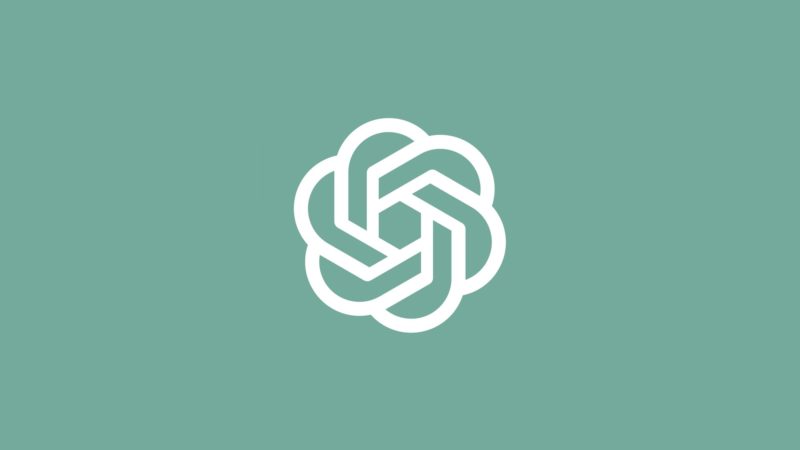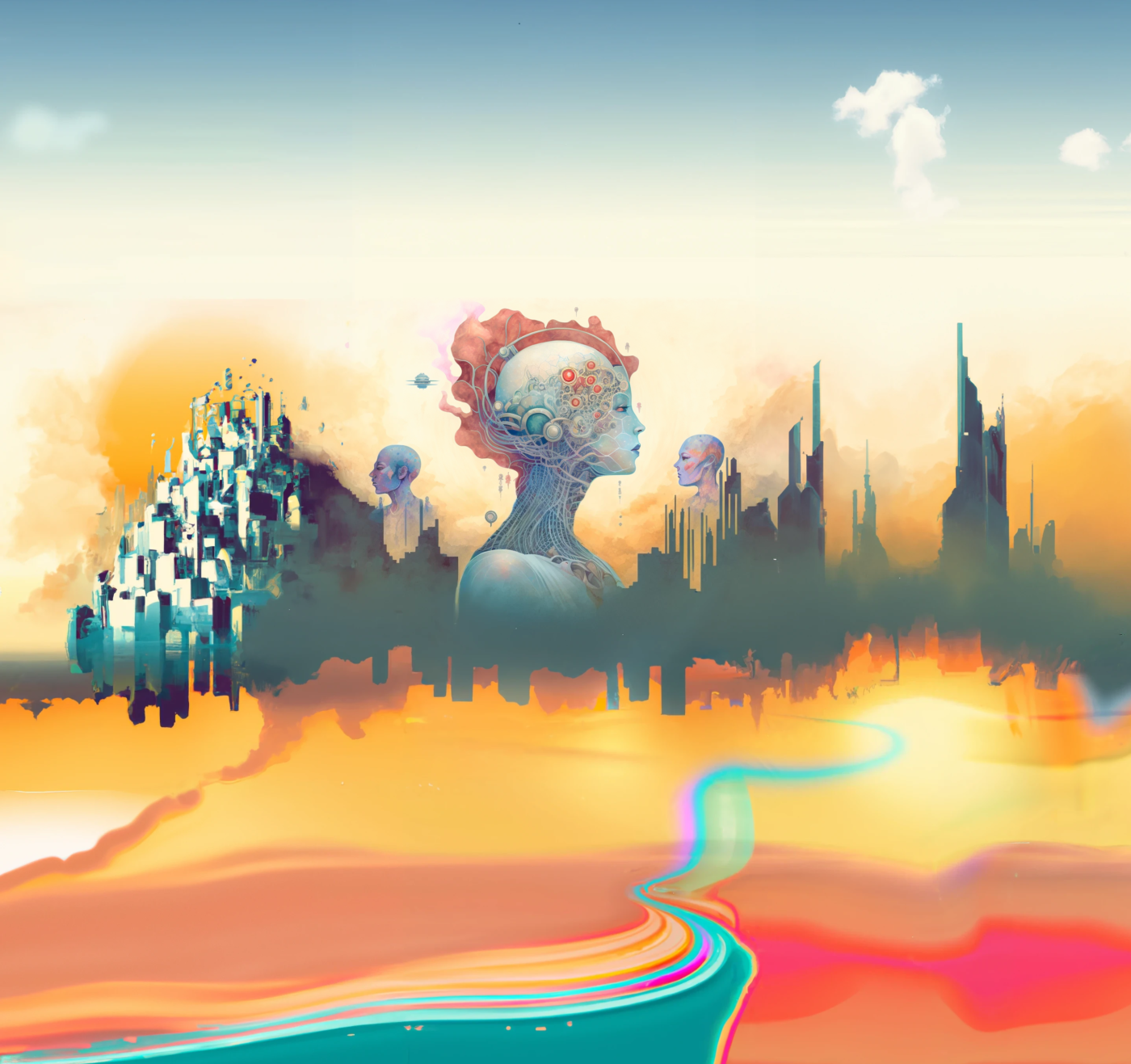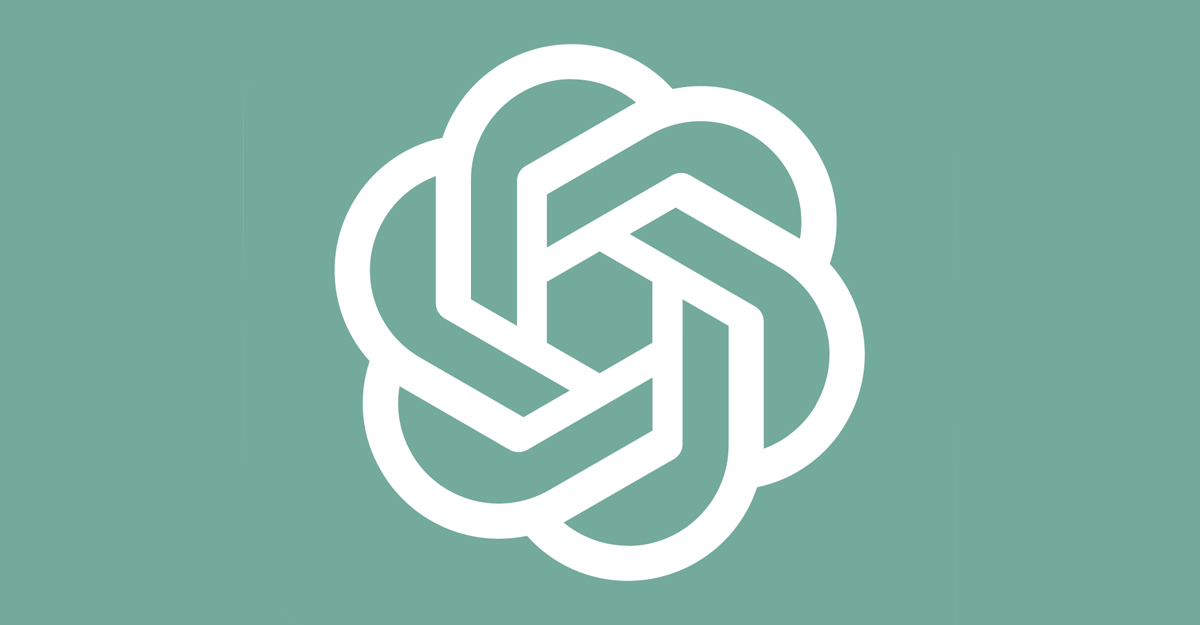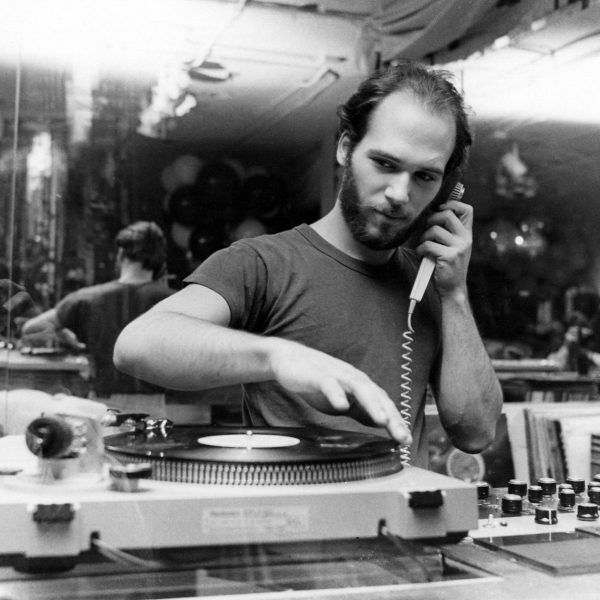Let’s talk about some of the pushback that AI and ChatGPT have received from the artistic community. Reading your book, I was trying to reconcile the idea of empowering artists with all of the news coverage of artists from different disciplines raising issues of copyright infringement and exploitation. And also on a basic level, there’s the idea that robots are taking our jobs. How do you hold that tension in mind?
I think there’s a tremendous tension there. Tremendous uncertainty. Lots of things to be very, very concerned about. Absolutely. So if I step back for a minute, I think a lot of the concerns and tensions and fears here are a bit like those around climate change. We absolutely should take them seriously. We absolutely should take time to invest time in mitigation, prevention, fixing problems that have already been caused, we absolutely should do all those things. But also, if we need to go to Ibiza, we should get on a plane.
With AI we absolutely should spend time on all these concerns and challenges and take them seriously. But if you’re trying to market your music release, you should use AI. I think we have that uncomfortable tension where we should do both. I think on the tensions themselves, the most obvious one to me is that by using it, we are using the data that it was trained on. Original work by people who have not been compensated for this use.
If you use it to help you think about sequencing a DJ set, somebody at some point wrote down the reasons why that song works in the way it does. That person is not being compensated for that knowledge making it into your set, right? The same with marketing campaigns. So that feels like a problem.
I think it was Isaac Newton who said that if he’s achieved great things it’s because he stands on the shoulders of giants, and every invention, every step forward, and every industry has always been based on everything that came before. But never quite as explicitly as this. So I think there’s the moral question there, definitely.
But I think on the jobs point, I don’t worry for one second at all. In my field, where I’m an expert at marketing, I’m very, very clear that it makes good people better, and it makes most junior people better. It basically just helps everybody. I feel like in my team [with ChatGPT] I have many, many new employees who are available to me 24/7, and experts in so many different topics.
I also can take on more work than ever before, and every human member of my team is more valuable than ever before. So I don’t think there’s any risk of job losses in total, and I think it’s just incredibly empowering for absolutely everybody. I think the only job losses will be people who refuse to use it, just as there probably were job losses when people refused to use computers. There were probably job losses when people refused to use email as well. It’s just incredibly empowering to everybody. There’s so much more work that the world can take on, so much more art that can be created and more ways that can be consumed. I’m not worried about job losses for a second at all, whatsoever.
Are you optimistic when it comes to the future of AI more generally? Like, from an existential perspective, the forecasts range from heaven to hell—you know, the end of all civilization. Are you optimistic?
Definitely not. I think it’s like climate change. It will, or might, end our civilization, as climate change will or might. Will we put in place the safeguards between now and then to solve the problems that it causes? Maybe? Possibly? Probably? It’s not certain at all.
Should we fly in a plane to Ibiza? Yes. And should we use AI in our work? Yes. But there is this existential threat. When you look at reports from people who’ve used these AIs before they had safeguards added on to them, they call it alignment, so the raw version of ChatGPT before it was aligned. People report that it’s capable of absolutely terrible things.
And why wouldn’t it be.
There’s no reason why you should be good at particle physics but not killing people. There’s absolutely no reason. The only reason you can use ChatGPT is because it’s had one arm tied behind its back—but that’s very imperfect. Tying someone’s arm behind their back is absolutely no guarantee that they’re not going to misbehave in interesting ways. I think it’s an incredible challenge.
That’s really interesting to hear. I mistakenly concluded that your enthusiasm about ChatGPT in the book would translate to bigger-picture optimism about AI.
Maybe I’m fooling myself by separating the long-term and the short-term. But the short-term is so damn exciting and so incredibly empowering for so many people, I want to help people to embrace that. But in the long-term it’s really, really worrying. Again, millions of people who are really worried about climate change fly to Ibiza every summer. As do I.
At this stage, how much has ChatGPT weaved itself through your professional life?
I use it all day, every day. On almost everything I do.
Wow.
Without exception. I was pretty good at what I did before. I was really proud of it. But what I do is better now. That’s remarkable. I was at my limit; well, I thought I was. And so it’s made me better. I think that’s really humbling, to realize that I wasn’t as good as I could have been.
I’m quicker now. So things that would have taken me a week to get back to somebody, maybe because I just couldn’t face doing it, or maybe because when I did do it I was so slow. I now get back to them within 10 minutes and with a very thorough response.
I take on projects I never would have taken on before. In February I did this report for the Night Time Industries Association on the economic value of UK electronic music. A big 50-page report on a short deadline. I probably would have said no to doing that report if I hadn’t known that I’d got ChatGPT by my side. I knew I could have handled the economic valuation, the core of the report. But explaining it and bringing it to life and exploring all of the implications of it—I didn’t have the time, I didn’t have the brainpower to do that by myself. But knowing that I had this amazing assistant by my side, to support me and challenge me and nudge me and, you know, fix my dodgy wording. I did a report that I’m incredibly, incredibly proud of, in just a couple of weeks, that I wouldn’t have done otherwise. So yeah, it’s really, really changed my life in so many different ways.
Could you say something about the need for patience and the learning curve involved with ChatGPT? It’s so different from what we’re used to, I get the impression that people might be tempted to give up quite quickly if they don’t immediately get what they want from it.
Here’s what I’d say to somebody in that situation. So first of all, David Boyle is telling you that work is better, quicker, clearer and more fun with this. Also, at least two academic studies have shown that to be true in different forms of life as well. So maybe it’s not just David, maybe there’s other evidence. OK, so maybe there’s something here?
Secondly, I would honestly start by having fun with it. Just play with it and be silly. Don’t put too much pressure on it and learn its quirks by having fun. And then when you come to apply it to work, I would say pick one pain point of yours, which might be creating marketing assets, or it might be dealing with your manager’s emails, might be looking at contracts, just pick one pain point of yours, and get really good at using ChatGPT in that one area.
In doing so you’ll learn that it often fails on its first attempt, and you need to try again and again and again. You’ll learn how to make it work on the second try instead of the third try. And then a first try instead of the second. You’ll learn all sorts of lessons which make it really easy to roll it out into other areas.
You need a win to celebrate and to motivate you. The first win is probably being silly and having fun with your friends. And the second is probably in one area of your professional life. And then go on from there to others. The one mistake people make is: try here, it doesn’t quite work. So they try to use it somewhere else, that doesn’t quite work. Try it somewhere else, that doesn’t quite work. And then just giving up. Push through, persevere in at least one area.
I guess it’s also about redefining the relationship we have with a new technology.
A good way to think of it is to come back to our notion that it’s an incredibly capable system you happen to communicate with by text. Treat it like that and bounce ideas off it. And ask for help. When I often have a new idea, or some crazy thought comes to me, the first thing I did in the old world was to write it down in my notebook. I got through one notebook a month.
This notebook has lasted me three months because now most of my new thinking goes into ChatGPT. I have an idea. I put it in ChatGPT and say, ‘What do you think of this?’ And it says, ‘David, that’s great, here’s three reasons why it’s really thoughtful. But you know what, here’s four reasons why that might not be quite right. You need to rethink it.’ My notebook didn’t do that.






